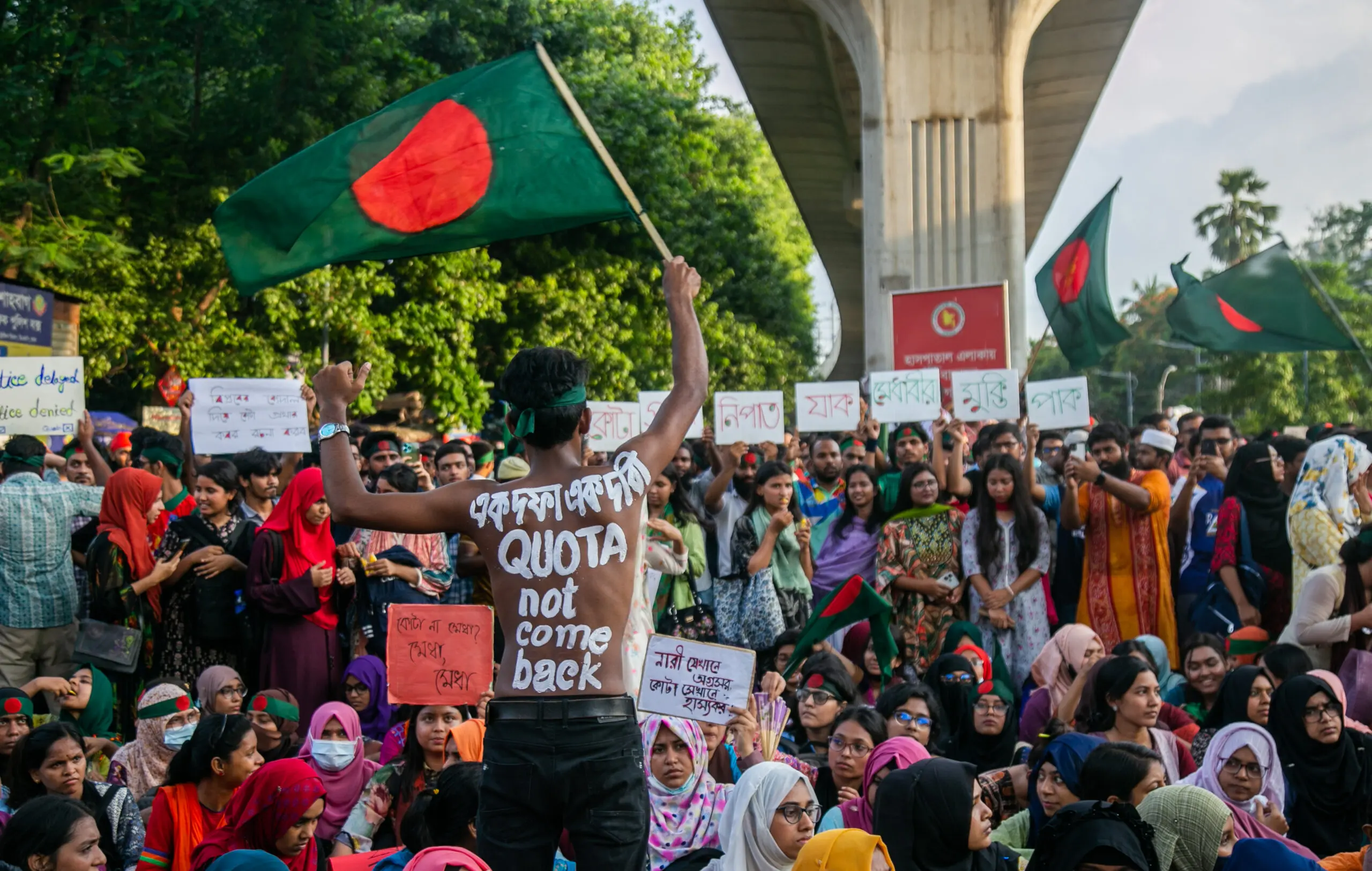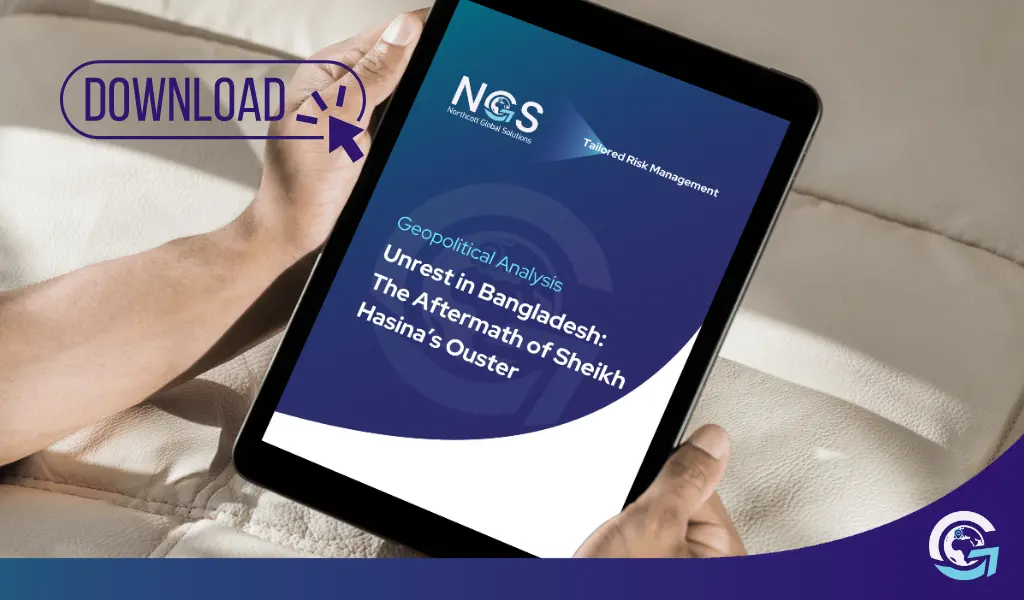Associate Analyst Sasha Leaver explores the pivotal moment in Bangladesh following ousting of Sheikh Hasina. As the country navigates political turmoil and civil unrest, the future of Bangladesh hangs in the balance. To understand these stark challenges, read the full article at the bottom of the page.
In the ever-shifting landscape of global politics, Bangladesh is facing one of its most critical moments. The abrupt ousting of Sheikh Hasina in August 2024 leaves the country at a crossroads, with its future hanging in the balance. Sasha examines the profound implications of this political upheaval, offering insights into what might come next for Bangladesh and its people.
For years, Sheikh Hasina dominated Bangladeshi politics. Her rule was increasingly marked by autocratic tendencies. Her fall, triggered by a wave of student-led protests, signals a potential shift for the nation. Nevertheless, the challenges ahead are formidable. The protests, which began over a controversial quota system, quickly grew into a broader movement against Hasina’s governance. The unrest reached its peak in early August. Mass protests prompted Hasina’s departure and the installation of an interim government led by Nobel laureate Muhammad Yunus.
Despite the hopes surrounding the transition, significant obstacles face the interim government. The civil service is deeply intertwined with Hasina’s regime. The judiciary is heavily politicised. Therefore, meaningful reform will not come easily. The new leadership must navigate a landscape fraught with political corruption, economic instability, and simmering civil unrest.

One of the key challenges facing the interim government is maintaining Bangladesh’s relationship with India. The country is a crucial ally that has been shaken by recent events. Hasina’s close ties with India had brought economic benefits and strategic cooperation. However, her sudden ouster and increased attacks on Hindus has strained these relations. The interim government must act swiftly to repair this vital partnership. Bangladesh cannot afford to lose India’s support at such a critical juncture.
Domestically, the situation remains volatile. The protests that led to Hasina’s departure were not just about political grievances. They also reflected deep economic frustrations, particularly among the country’s youth. High unemployment rates and dissatisfaction with the government’s handling of the economy have left many young people disillusioned. The interim government must find ways to address these issues to prevent further unrest.
Bangladesh’s future is uncertain, and the stakes are high. The country has an opportunity to rebuild its democratic institutions and restore public trust. Yet, the path forward is fraught with risks. The coming months will be crucial in determining whether Bangladesh can emerge from this crisis stronger and more stable or whether it will fall back into a cycle of autocracy and instability.

Monitor Political Developments: Stay informed on Bangladesh’s political situation, especially in the post-Hasina period. Sudden political changes can trigger widespread unrest and impact security conditions rapidly. Likely triggers for unrest include Hasina’s return to the country, the resignation of Muhammad Yunus, and widespread accusations of electoral irregularities.
Strengthen Local Networks: Establish or maintain strong local contacts who can provide real-time updates on developing security threats, including ongoing protests or changes in local sentiment towards foreign entities.
Consider Enhancing Facility Security: Consider Increasing security measures at key facilities, especially those in Dhaka near areas of political tension. This includes ensuring that buildings are secure and emergency procedures are in place.
Monitor Relations with India: Given the strained relations between Bangladesh and India post-Hasina, closely monitor cross-border dynamics. Heightened tensions could lead to disruptions in travel, trade, or even targeted attacks on perceived Indian interests within Bangladesh.
Stay Updated on Ethnic Violence: Be aware of rising ethnic tensions, particularly against Hindu communities, in the wake of Hasina’s ousting. This can be through contacts with local fixers or monitoring the news. Such tensions could lead to targeted violence or broader unrest, necessitating heightened security for at-risk groups.
Secure Digital Communications: In light of the government’s previous internet shutdowns during unrest, ensure that alternative communication methods are in place for key personnel to maintain contact during potential disruptions.
Evaluate Contingency Plans: Review and update evacuation and contingency plans regularly. Ensure multiple evacuation routes are considered, particularly in light of deteriorating infrastructure and the potential for violent protests or government crackdowns.
Leave a comment below or ask us directly. For more information on our bespoke risk management services, book a call today. Order custom analyst papers like our Traveller Insight to stay informed and ahead of the curve.